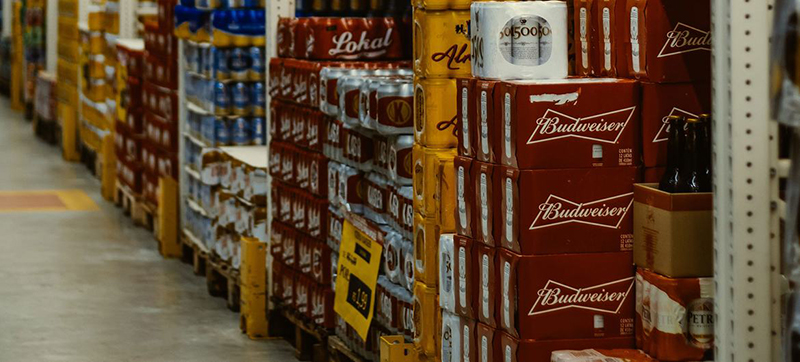 WHO
WHO
WHO calls for greater regulation of cross-border alcohol marketing
New York: Alcohol is increasingly being marketed across borders, with young people and heavy drinkers particularly targeted, the World Health Organization (WHO) said in a new report on Tuesday that calls for more effective regulation.
The study outlines how the digital revolution in marketing and promotion is being used to advertise alcohol across national borders, and in many cases regardless of social, economic, or cultural environments.
Drinking alcohol is causally linked to an array of health problems, WHO said, ranging from alcohol dependence and other mental and behavioural disorders, to major noncommunicable diseases such as liver cirrhosis, some cancers and cardiovascular diseases, as well as injuries and deaths resulting from violence and road traffic accidents.
Saving young lives
Worldwide, some three million people die each year as a result of the harmful use of alcohol – one every 10 seconds – representing around five per cent of all deaths.
Young people account for a disproportionate number of these alcohol-related deaths, with 13.5 per cent of all deaths among people aged 20-39 being alcohol-related.
“Alcohol robs young people, their families and societies of their lives and potential,” said Tedros Adhanom Ghebreyesus, the WHO Director-General.
“Yet despite the clear risks to health, controls on the marketing of alcohol are much weaker than for other psychoactive products. Better, well enforced and more consistent regulation of alcohol marketing would both save and improve young lives across the world.”
Rise of digital media
The report highlights how recent changes in alcohol marketing have created new opportunities to reach audiences.
The collection and analysis of data on users’ habits and preferences by global internet providers has allowed alcohol marketers to target messages to specific groups across national borders.
The study found targeted advertising on social media is especially effective, and further bolstered by influencers and through sharing posts.
One data source quoted in the report calculated that over 70 per cent of media spending of leading alcohol marketers based in the United States in 2019 was through promotions, product placement and online advertisements in social media.
“The rising importance of digital media means that alcohol marketing has become increasingly cross-border,” said Dag Rekve of the Alcohol, Drugs and Addictive Behaviours Unit at WHO.
“This makes it more difficult for countries that are regulating alcohol marketing to effectively control it in their jurisdictions. More collaboration between countries in this area is needed.”
Sponsoring sporting events
Alcohol companies are also sponsoring major sporting events at the global, regional and national levels, which according to the report can also significantly increase brand awareness among new audiences.
They are also partnering with sports leagues and clubs to reach viewers and potential consumers in different parts of the world.
Other opportunities include sponsorship of competitive gaming events or product placement in movies and serials streamed on international subscription channels.
Drinking as ‘empowerment’
The report - Reducing the harm from alcohol – by regulating cross-border alcohol marketing, advertising and promotion – also examines how specific audiences are targeted, with particular concern for children and adolescents, women, and heavy drinkers.
WHO said studies have shown that starting to drink alcohol at a young age is a predictor of hazardous drinking in young adulthood and beyond. Marketers are also particularly targeting areas of the world with young and growing populations, such as Africa and Latin America.
And while men consume three-quarters of the alcohol that the world drinks, the lower rate among women also presents an opportunity for growth. Alcohol marketers often depict drinking by women as a symbol of empowerment and equality, according to the report.
Heavy and dependent drinkers are another focus for marketing efforts.
“Alcohol-dependent people frequently report a stronger urge to drink alcohol when confronted with alcohol-related cues, yet they rarely have an effective way to avoid exposure to the content of the advertising or promotion,” WHO said.
Integration and collaboration
The report recommends that comprehensive restrictions or bans of alcohol marketing, including its cross-border aspects, are integrated in public health strategies. It also calls for greater collaboration between countries.
WHO said that although many governments have implemented some form of restrictions on alcohol marketing, they tend to be relatively weak.
A 2018 study by the UN agency revealed that while most countries have some form of regulation for alcohol marketing in traditional media, almost half have no regulation that applies to the Internet and social media.
Support Our Journalism
We cannot do without you.. your contribution supports unbiased journalism
IBNS is not driven by any ism- not wokeism, not racism, not skewed secularism, not hyper right-wing or left liberal ideals, nor by any hardline religious beliefs or hyper nationalism. We want to serve you good old objective news, as they are. We do not judge or preach. We let people decide for themselves. We only try to present factual and well-sourced news.







